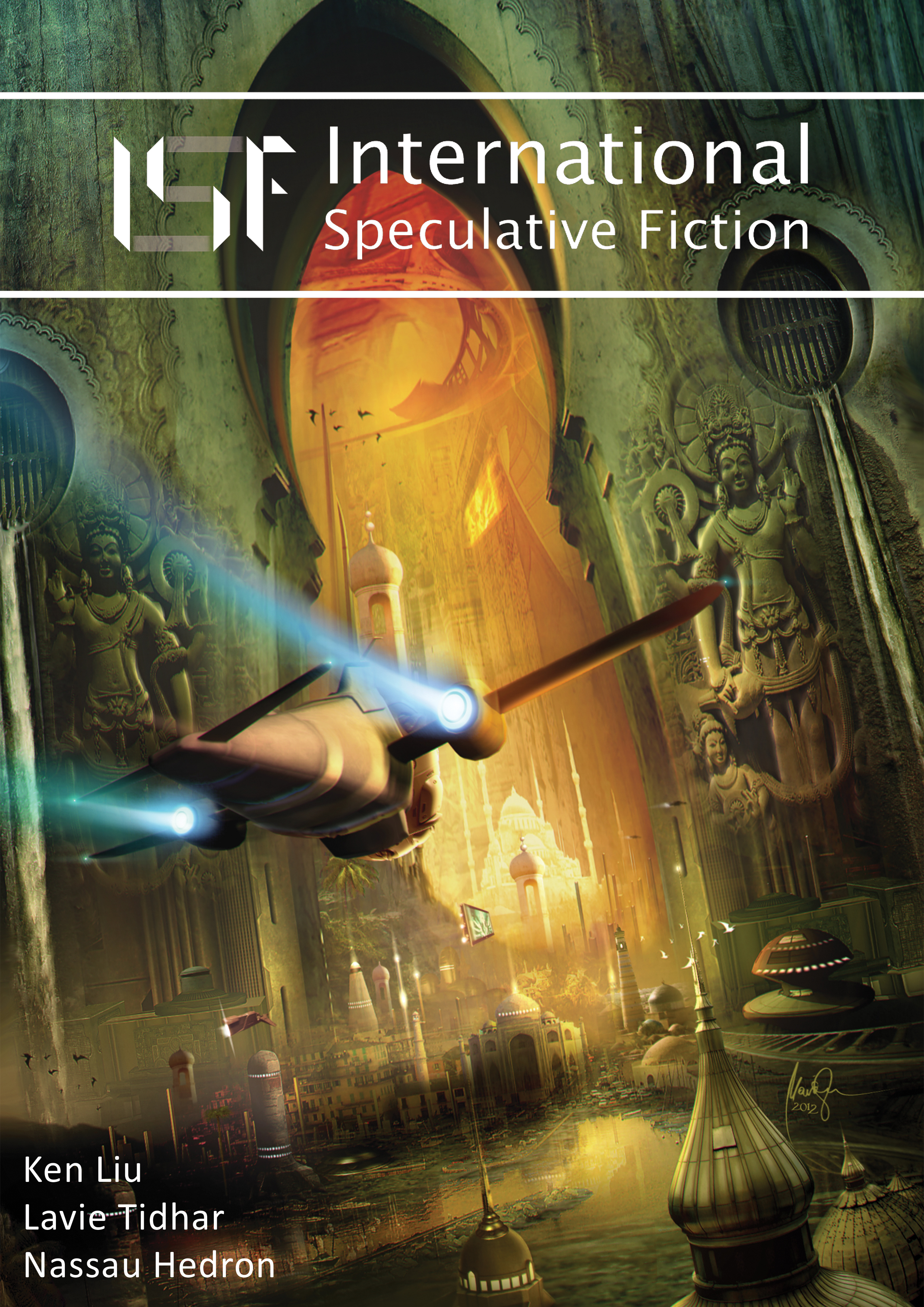Yes, I know, the last thing I should be doing right now is starting a new project. Don’t I have enough to do already? I thought of that myself. But this was such a good idea, so I’m doing it.
I blame Karen Lord. I was chatting on email to her and Karen Burnham, mainly about their awesome SF Crossing the Gulf podcast. Ms. Lord said something to the effect that someone should do a podcast about translation. Oh, I thought, that had better be me. Fortunately Ms. Burnham thought it was a good idea too, and offered to produce it and get it online. All I have to do is find the guests and interview them. And that, I can assure you, will be a pleasure.
The podcast will be called Small Blue Planet. The basic idea is that each month I will have two guests on the show, spotlighting a different country each episode. The guests will mostly come from countries where English is not the dominant language. They will be readers, writers and translators of science fiction and fantasy. I’ll get them to talk about the SF&F scene in their country, and also about their language. We’ll talk about conventions and fanzines, about their local writers, about what English-speaking writers are popular in their country, and about the pros and cons of their language and culture for writing SF&F.
Karen will be putting the finished podcasts up on the Locus Roundtable blog. And hopefully she’ll ask a few questions of her own during the discussion.
There was no question which country I should start with. Our guests for January will be Jukka Halme and Marianna Leikomaa. They have both chaired successful Finncons. Jukka is one of Finland’s foremost SF&F critics, and Marianna is an experienced translator. And yes, we will talk a bit about that Finnish Worldcon bid. We’ll also talk about Johanna Sinisalo, Hannu Rajaniemi, and many wonderful writers that you are probably not yet familiar with.
We will celebrate the Chinese New Year in February by talking to Ken Liu and Stanley Chan (Chen Qiufan). Ken is the first person ever to win the Hugo, Nebula and World Fantasy Award for the same story (“The Paper Menagerieâ€). Together they won the 2012 SF&F Translation Award: Short Form for Ken’s translation of Stanley’s “The Fish of Lijiang†(Clarkesworld #59). Stanley works for Google in Beijing and has won several awards for his fiction in China.
In March we move on to another emerging economic power: Brazil. Our guests will be Fábio Fernandes and Jacques Barcia. You probably know Fábio from his articles on SF Signal and other places. You may not know that he is the Brazilian Portuguese translator for Neuromancer, Snow Crash, A Clockwork Orange and many other fine books. Jacques is an author and musician. Several of his stories have appeared in English.
That’s as far as the planning goes right now. In April and May I’m likely to be at conventions in Europe and hope to do some live recordings there. I also have plans to reach out to Latin America, Africa, the Middle East and Asia. Occasionally we’ll visit countries that we might think of as English-speaking, but which have a wide range of local languages as well; places such as India and South Africa. Some of you are probably thinking that I’ll be pestering you soon, and you may well be right. Email if you are keen.
The plan is to try to do one episode a month. However, I’m not going to advertise a precise schedule. It all depends on when our guests are available. Also Karen has her job at NASA and a small son to worry about, and I have a publishing company and bookstore to run. Don’t worry though, we’ll both blog and tweet about new episodes as they become available.
I am so excited about this. Initially it will give me a chance to promote the work of some talented friends, and longer term I’m hoping I’ll make new friends in countries I know little about. I know I’ll learn a lot, and I hope you will too.


